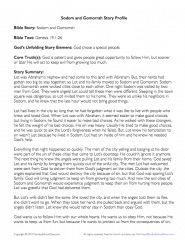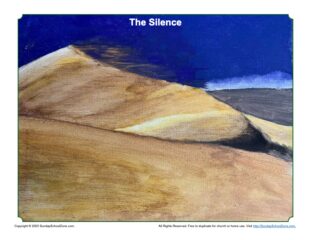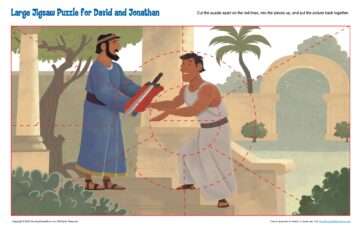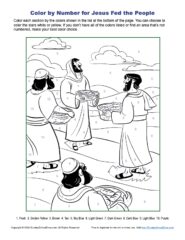Sodom and Gomorrah Story Profile
This Sodom and Gomorrah Story Profile provides a simple overview of the story (for kids) along with commentary, highlights, points of interest, and an approximate date for the Sodom and Gomorrah story. A printable PDF for this profile is available here and all related activities are listed here.
Bible Story: Sodom and Gomorrah
Bible Text: Genesis 19:1-26
God’s Unfolding Story Element: God chose a special people.
Core Truth(s): God is patient and gives people great opportunity to follow Him, but sooner or later He will act to keep evil from growing too much.
Story Summary:
(Note: A teaching picture formatted for 11 X 17 and a teaching picture formatted for 8.5 X 11 are available on the site. This story summary is formatted and included with each teaching picture so it can be easily printed on the back of the desired teaching picture.) Lot was Abraham’s nephew and had come to this land with Abraham. But, their herds had gotten too big to stay together, so Lot and his family moved to Sodom and Gomorrah. Sodom and Gomorrah were wicked cities close to each other. One night Sodom was visited by two men from God. They were angels! Lot could tell these men were different. Sleeping in the town square was dangerous, so Lot invited them to his home. They were so unlike his neighbors in Sodom, and he knew that the late hour would not bring good things.
Lot had lived in the city so long that he had forgotten what it was like to live with people who knew and loved God. When Lot was with Abraham, it seemed easier to make good choices, but living in Sodom, he found it easier to make bad choices. As he walked with these strangers, he felt the weight of his bad choices. His sin was heavy. Usually He tried to make good choices, and he was quick to ask the Lord’s forgiveness when he failed. But, Lot knew his temptation to sin wasn’t just because he lived in Sodom. Lot had sin inside of him and he knew he needed God’s help.
Everything that night happened so quickly. The men of the city yelling and banging at his door were part of the sin of these cities that came to Lot’s doorstep. He couldn’t ignore it anymore. The next thing he knew the angels were pulling Lot and his family from their home. God saved Lot and his family by bringing them quickly out of the sinful city. The men Lot had welcomed were sent from God to deliver them from God’s judgment on the cities. Outside the city, the angels explained that God would destroy the city because of sin, but that God was sparing Lot’s family. God will bring judgment to keep sin from growing too much. And now the evil cities of Sodom and Gomorrah would experience judgment to keep their sin from hurting more people. Lot was grateful that God had delivered them.
But Lot’s wife didn’t feel the same. She loved the city, and when the angels told them to flee, she didn’t want to go. When they took her hand, she pulled back and argued with them, but the angels didn’t listen. Lot knew she would rather stay in Sodom than obey God.
God wants us to follow Him with our whole hearts. He wants us to obey Him, not because He wants to keep us from fun, but because He wants to protect us from the consequences of sin, but Lot’s wife didn’t understand. She disobeyed and looked back at the city she loved more than God. Lot’s wife didn’t escape God’s judgment because He knew her heart, so when she looked back she became a pillar of salt. God saved Lot and his daughters because of His love. Today, the sacrifice of Jesus Christ is better than what the angels did for Lot and his daughters. Jesus paid the price for our sin for all time. Like the angels in this picture, Jesus’ love pulls us toward loving God and away from judgment for our sin.
Commentary:
The story of God’s judgment on Sodom and Gomorrah, found in Genesis 19:1-26, is an example of how God moves to restrain the growth of evil. We learn in the early chapters of Genesis that evil is insidious, powerful, and growing rapidly. Without God’s judgment and restraint on evil, it would quickly grow to the point of unspeakable death for all of creation and people.
In Genesis 18:16-33, Abraham intercedes for the cities of Sodom and Gomorrah and God agrees that He will spare the cities if He finds even 10 righteous people among the population. It becomes apparent that the city is so given over to evil that God is not able to find the minimum number of righteous people, so judgment becomes inevitable.
The description of the peoples’ sinful behavior in this story is graphic and astonishing. It helps the reader capture the extent to which evil has corrupted and deceived the people. It’s a sad picture of the condition in which communities and even nations can find themselves when sin and evil is allowed to go unchecked. It’s not just the cultural institutions (governments, businesses, religious organizations) that are corrupt. The people themselves are wallowing in self-gratification at the expense of themselves and others.
It’s no wonder that God was visiting the city “to see if what they have done justifies the cry that has come up to Me” (Gen. 18:21). Sooner or later sin and evil becomes systemic and increasingly self-destructive to the people and their culture. The pain and suffering caused by personal and systemic evil cries out to God even while the victims revel in the very sin and self-deception that is destroying them. We should not be surprised by the inevitable judgment recorded in the narrative. The destruction that falls on Sodom and Gomorrah is simultaneously an act of both judgment and grace on a people given completely over to evil.
There are often aspects of God’s judgment that are not revealed to us in the Scripture. We simply have to trust that His judgment is always right and just. It is clear, however, that God will act, sooner or later, to restrain evil and its growth. In this context judgment becomes an act of grace to keep evil from spreading in ways that will cause even further devastation on creation and humanity.
God’s judgment is never arbitrary. It is purposeful and just. The judgment that fell on Sodom and Gomorrah was just another instance of God’s gracious involvement in history to accomplish His purposes in His time. It is one more piece in the biblical puzzle picture. Children need to understand that God is patient and gives people great opportunity to follow Him, but sooner or later He will act to keep evil from growing beyond a certain point.
Highlights:
- God was not anxious to arbitrarily punish the people of Sodom and Gomorrah. Rather, He needed to act to restrain the further growth of evil and its devastation.
- Abraham was able to intercede for the cities and appeal to God’s compassionate grace. However, Abraham’s intercession in chapter 18 is not the primary point of the story of judgment in chapter 19.
- Sin and evil will grow without God’s restraining hand. The more it grows, the greater is its devastation on people and creation. God sees the devastation of evil on a people and is motivated by it.
- Lot and his family (especially his wife) had clearly been influenced by the evil of the culture within which they were living. Christians should be diligent to protect themselves against the power and influence of evil in our culture.
Point(s) of Interest:
- The sin described among the inhabitants of the city was that of rampant homosexuality. This suggests that once a culture has placed its hand of blessing on homosexuality, it is not far from judgment.
- Younger children don’t need to understand the graphic details of the homosexual lust described in the story. It should suffice that children know the cities of Sodom and Gomorrah were dong very bad things that hurt themselves and others.
Approximate Date:
Scholars disagree on the precise dates of Abraham’s life or events that occurred during his life. The Bible is clear that Abraham lived to be 175 years old and it seems fairly certain that he lived somewhere between 3,000 BC and 2,000 BC.
- Related Activity Links:
- Judgment, Sin ,
- Abraham, Lot ,
- Grade School (Readers), Preschool (Non-readers) ,
- Sodom and Gomorrah




